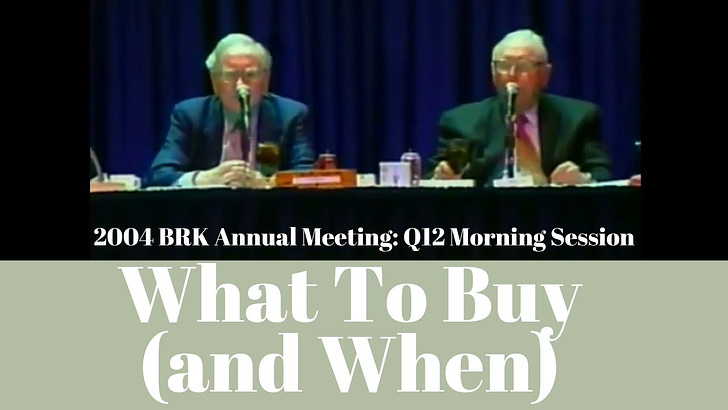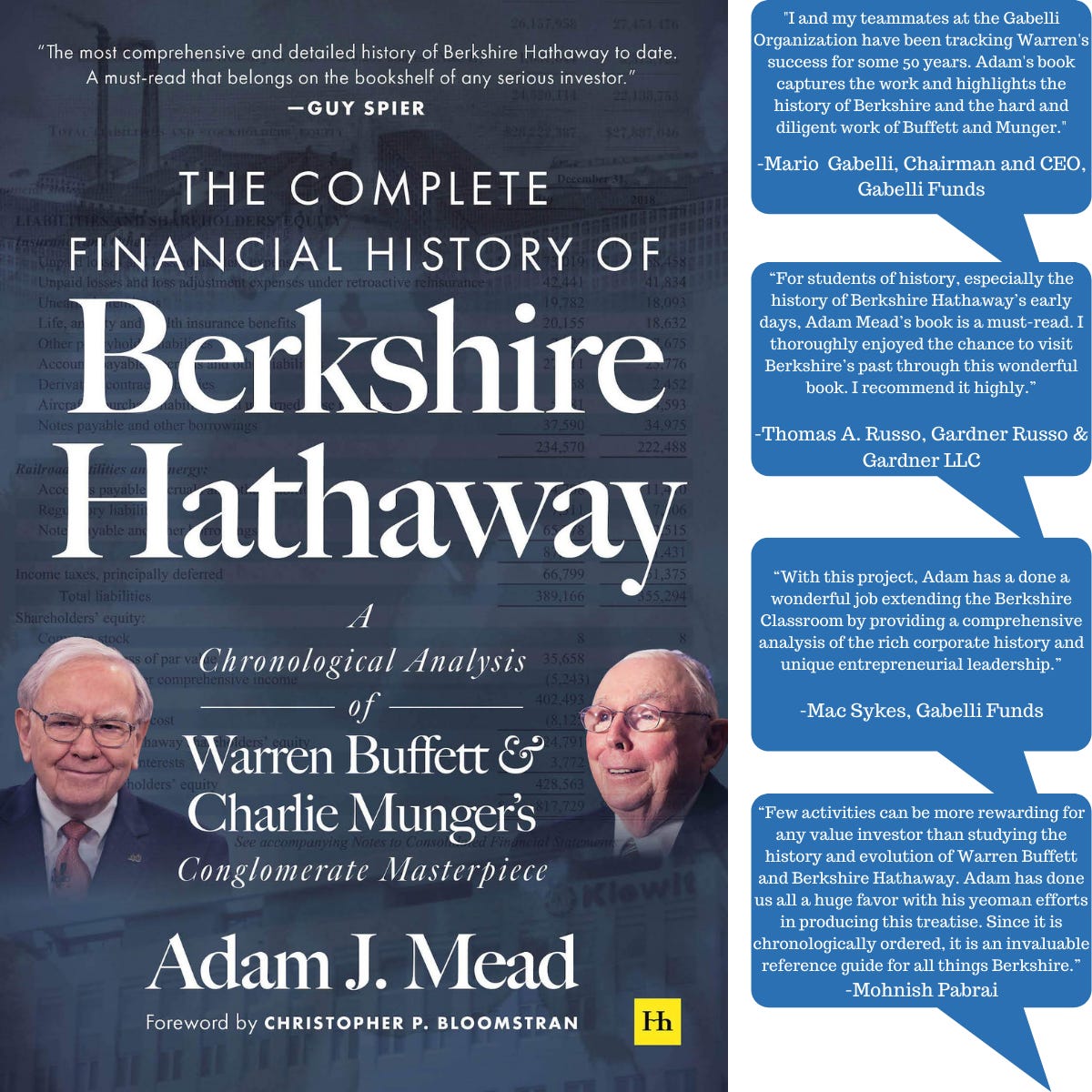88: Buffett: How To Think About Investment Alternatives
"And there’s, you know, this business where somebody says, 'You should have 50 percent of your money in bonds and 35 percent, you know, in equities, and 15 —.' We don’t go through anything like that."
You’re reading the weekly free version of Watchlist Investing. If you’re not already subscribed, click here to join 1,700 others.
Want more in-depth and focused analysis on good businesses? Check out some sample issues of Watchlist Investing Deep Dives.
For less than $17/month, you can join corporate executives, professional money managers, and students of value investing receiving 10-12 issues per year. In addition, you’ll gain access to the archives, now 18 issues and growing!
It’s All About Opportunity Cost
In his 1986 Chairman’s letter, Warren Buffett explained that Berkshire had five categories of investments to choose from:
Common stocks
Long-term bonds
Medium-term bonds
Very short-term bonds / cash equivalents
Arbitrage
Not surprisingly, Buffett preferred common stocks. Fast forward to 2004 and a shareholder asks Buffett to rank them again. His response was laden with wisdom. Here are my takeaways:
One needs to consider all alternatives all the time. The game is continually searching for intelligent things to do, within your circle of competence, regardless of asset classification.
Individual securities cause a particular class to become attractive, not the category first. For example, Berkshire bought junk bonds in 2002. That came about because Buffett started seeing mispricings. (Fun fact: One junk bond BRK bought at that time was Amazon.)
Save your time. Munger (paraphrasing): We don’t spend time thinking about how to rank categories that aren’t attractive at the moment.
Markets are sometimes wildly inefficient. In the summer of 2002, some bonds were yielding 30% to 40% and then went to yields of 6% a year later, meaning the prices went way up. And, as Buffett notes, this wasn’t a period of great economic turmoil, just market turmoil. “Prices do amazing things in securities markets.”
Buy bonds “with the mental attitude of buying common stocks,” says Buffett. This was a quick comment but I think it deserves more thought. What he’s saying here is two things, I think. One is that bond investors and common stock investors should think alike, which makes sense because after all, they are looking at the same thing: a business. The second is that with junk bonds you’re almost in an equity position. If the company went bankrupt the bondholders would become equity holders. Better to think from that position first than to think like a bank that has collateral to back its investment.
Asset allocation doesn’t make much sense. See the quote at the top of the article. Berkshire never spent time deciding how much to put in bonds vs. stocks vs. currencies vs. international, etc. They just focused on looking for things they could understand that were mispriced.
Stay rational! —Adam






Thanks for putting the article together!